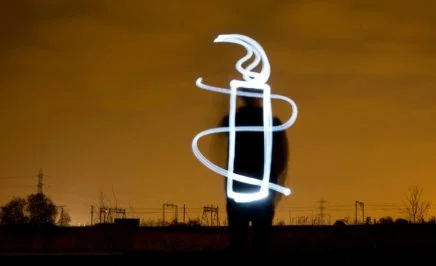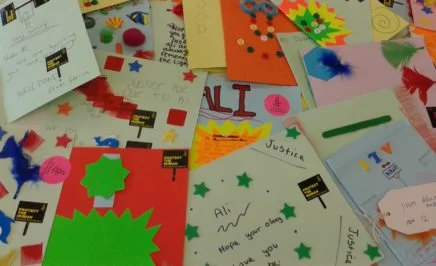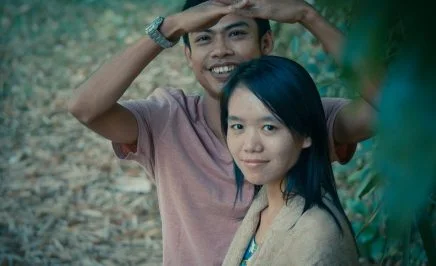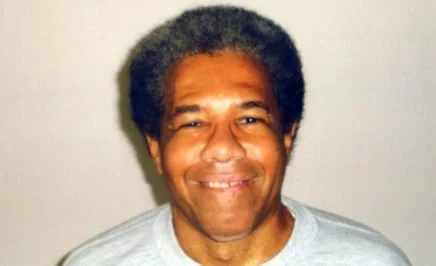When you’re bombarded by daily news of conflict, terror, unfair imprisonment and the mistreatment of refugees, it’s sometimes hard to keep a positive outlook and believe that you can help change things for the better.
But, by looking further than the attention-grabbing headlines, you’ll see that progress is happening all around the world thanks to people like you who are taking a stand for human rights.
We take a look back at the significant wins you have helped us achieve for human rights in the first half of 2016.

1. Damaging Northern Territory Laws defeated
The Northern Territory government was seeking to rush through some changes to the law which would make pre-trial prison the default for children charged with crimes who have been found guilty of certain offences in the past. This would have meant a presumption of jail, rather than bail, for kids as young as 10.
Our supporters in the Northern Territory sprang into action. They reached out to MP Larisa Lee — a key decision-maker in this case — urging her not to support the changes. Larisa responded that based on the concerns that had been raised with her by the community, she would not support the changes.
There were two more independent MPs whose position on the motion wasn’t yet clear. Just before the Bill was about to be debated, our supporters got in contact with these independents to make sure that they wouldn’t support these changes.
In the end, the government did not try to pass the laws. We have it on good authority that this was because they knew they didn’t have the numbers to support the move.
Read more about the NT bail laws.

2. Mexican torture survivor Yecenia Armenta released from prison
In 2012, Yecenia Armenta Graciano was was beaten, near-asphyxiated and raped by police during 15 hours of torture. She was forced to “confess” to involvement in the murder of her husband.
Amnesty supporters from all over the world sent 300,000 letters, petitions and emails to Mexican authorities urging them to release her immediately. Over 11,000 of these came from Australia.
After four years of being unjustly locked up in prison, Yecenia was able to walk free. She is now part of a brave group of women running a national campaign in Mexico focused on “breaking the silence” about the sexual violence and torture they have suffered.
Read more about Yecenia’s story.

3. Myanmar student activist Phyoe Phyoe Aung released
On 10 March 2015, Phyoe Phyoe Aung and 50 other students were arrested by police for their peaceful demonstrations.
Phyoe Phyoe Aung was charged with a range of offences including taking part in an unlawful assembly and inciting the public to commit offences against the State. She faced up to nine years’ imprisonment.
Amnesty International has campaigned heavily for Phyoe Phyoe Aung’s release. In Australia, almost 30,000 people signed our online petitions calling in Myanmar’s then-President Thein Sein to release Phyoe Phyoe Aung.
This year, their demand for her freedom was finally heard. Phyoe Phyoe Aung and many other people charged for peaceful activism in Myanmar have been able to walk free.
Read more about Phyoe Phyoe Aung’s release.

4. Albert Woodfox released
In 1971, Albert Woodfox, Herman Wallace and Robert King (known as The Angola Three) were jailed following a conviction for armed robbery. In 1973, Woodfox and Wallace were sent into solitary confinement after being convicted of murdering prison guard Brent Miller.
Woodfox and Wallace always maintained their innocence. Evidence against them was weak, and no fingerprints belonging to either man were found at the crime scene.
Woodfox spent almost all of his 43 years in prison confined to a tiny cell — 6ft by 9ft — for 23 hours a day.
For five years, our global movement generated more than 650,000 actions on behalf of the Angola Three. Almost 18,000 Australians emailed the Attorney General of Louisiana calling on him to release Albert Woodfox.
Their efforts made a difference; Albert Woodfox was released in February. On Albert’s release, Jasmine Heiss, Senior Campaigner at Amnesty USA said: “… this belated measure of justice, on Woodfox’s 69th birthday, is something he has been seeking for more than half his life.”
Read more about Albert and the Angola Three.

5. Syrian refugee M.K. released from airport detention in Turkey
In 2012, the Syrian crisis forced M.K. to flee his homeland and seek refuge in Jordan. Last November, he made his way to Turkey in the hopes of re-settling there with his sisters. Upon arriving at the Turkish airport on November 9, authorities detained M.K for allegedly using false identification. He remained there in a small airport room for four months.
Detaining M.K. in this small space for such a long time was cruel and inhumane. The lights were constantly on, which caused M.K.’s eyes a great deal of pain. He had limited access to medical care, despite repetitive requests for help, and he feared the imminent deportation back to war-torn Syria.
M.K. was the subject of an Amnesty International Urgent Action, which was sent out globally. In Australia, over 800 of our Online Urgent Action Network members sent emails to Turkish authorities calling on them to release M.K. and to grant him a protection visa.M.K. was finally released on 29 March 2016. On his release, M.K. thanked all of the Amnesty International supporters who sent appeals on his behalf and said he was very happy to finally be free.
Read more about M.K.’s release.





